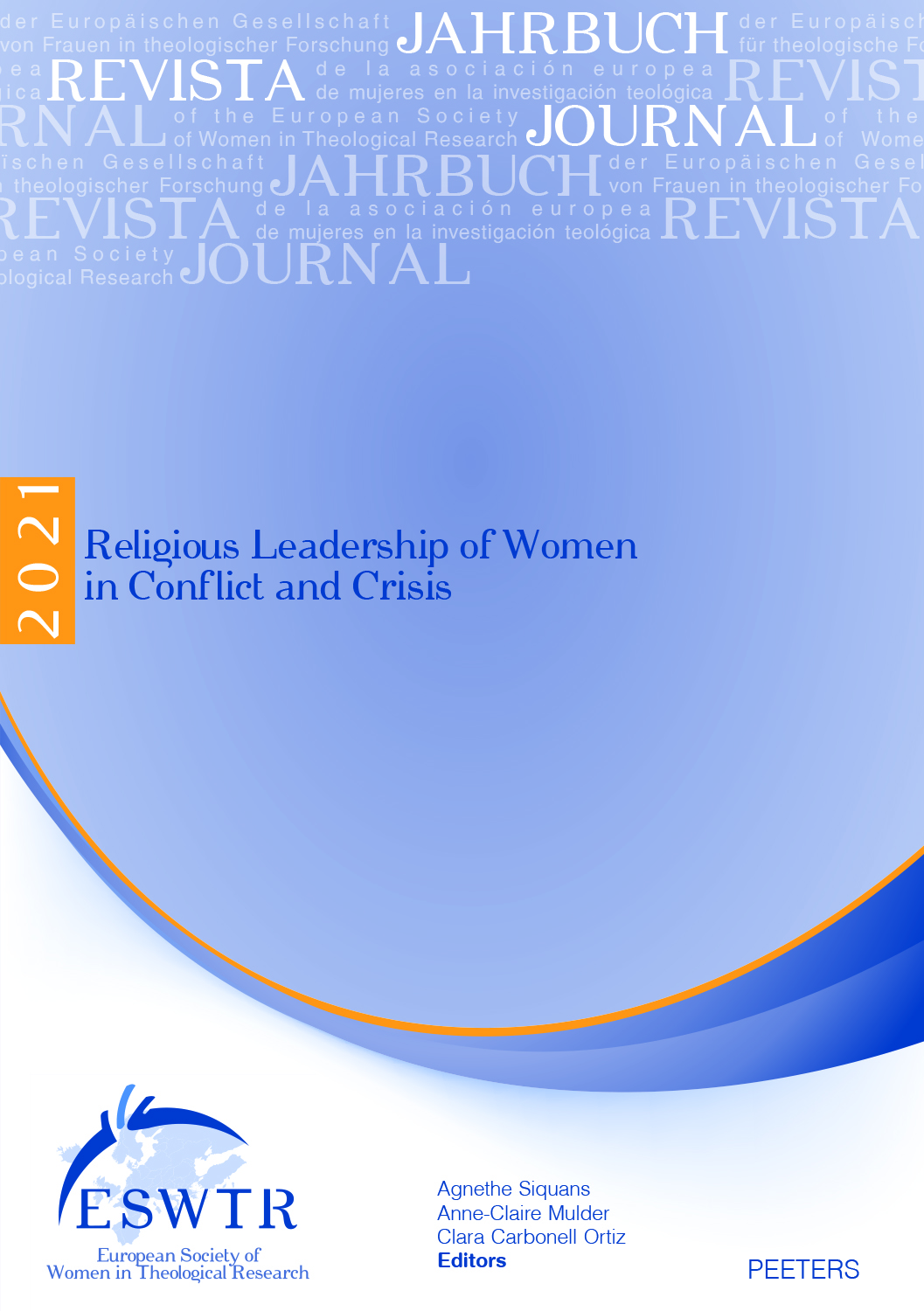 previous article in this issue previous article in this issue | next article in this issue  |

Preview first page |
Document Details : Title: Transformation and the Virtue of Ambivalence Author(s): DE HAARDT, Maaike Journal: Journal of the European Society of Women in Theological Research Volume: 25 Date: 2017 Pages: 13-30 DOI: 10.2143/ESWTR.25.0.3251302 Abstract : In this paper, delivered as key-note lecture at the Feminists Association’s Colloquium on transformation and the Church at Lisbon, 2015, it is argued that contrary to the suspicion of both secular and post-Christian feminists and the anti-gender movement in the churches, feminist theologies as well as women and faith movements offer strong transforming theological and spiritual dynamics for contemporary churches. To discover this transformative potential, a new and different vocabulary for faith, spirituality and Church is needed. Clues for this different vocabulary may be found in the application of a typology of the characteristics of feminist religious imagination, derived from Bednarowsky (1999) and illustrated amongst others by the life and work of Sor Juana Inez de la Cruz; the various implications of the ‘quotidian turn’ (de Certeau) for theology; the ‘ekklesiality’ (sense of community) of feminist theology and the importance of the experiences of God’s presence. Central for the transformative potential on all levels is the on-going, creative ambivalence that women and other marginalised people have about the status quo of both Church and society. These ‘relative outsiders’ have contradictory experiences combining simultaneously a deep sense of alienation and a deep sense of belonging and commitment. It is this inescapable ambivalence which maintains a dialogue both critical and committed with the Christian tradition; which offers a creative and transformative approach to traditional Church content, symbols and rituals; and which calls to imagine a community/ecclesiology in which plurality and differences may be considered ‘mixed blessings’. In diesem Beitrag wird die These vertreten, dass, im Gegensatz zu den Behauptungen der säkularen wie der nachchristlichen Feministinnen als auch der Anti-Gender-Ideologie mancher Kirchen, feministische Theologien genauso wie die Frauenbewegung und religiöse Gemeinschaften sehr wohl eine starke theologische und spirituelle Dynamik aufweisen. Um dieses transformative Potenzial zu entdecken, ist ein neues Vokabular für Glauben, Spiritualität und Kirche erforderlich. Ich sehe Ansätze dieses Vokabulars in a) der Anwendung der Typologie einer feministisch-religiösen Vorstellung nach Bednarowsky wie zum Beispiel im Leben und Werk von Sor Juana Inez de la Cruz; in b) den verschiedenen Implikationen des sogenannten quotidian turn in der Theologie und c) in dem, was ich die ‚Ekklesialität‘ der feministischen Theologie und die Bedeutung der Erfahrung der Gegenwart Gottes nenne. Zentral für dieses transformative Potenzial auf allen Ebenen ist die fortlaufende kreative Ambivalenz von Frauen und anderen marginalisierten Menschen gegenüber dem Status quo in Kirche und Gesellschaft. Als vermeintliche relative Außenseiter haben wir widersprüchliche Erfahrungen von gleichzeitig einem tiefen Gefühl der Entfremdung und einem tiefen Gefühl der Zugehörigkeit und des Engagements. Es ist diese unausweichliche Ambivalenz, die sowohl den kritischen als auch den engagierten Dialog mit der christlichen Tradition vorantreibt. Dieser eröffnet einen Raum für einen kreativen und transformativen Umgang mit den traditionellen Lehren, Symbolen und Ritualen der Kirche und für eine Gemeinschaft, in der Pluralität und Unterschiede als ambivalente Segnungen gelten. |
 |


